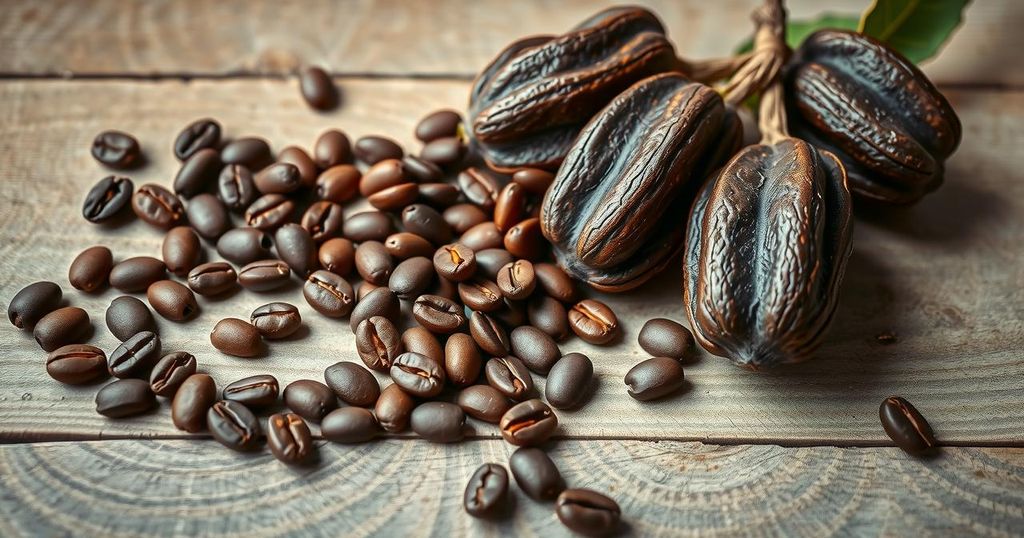Arabica coffee futures declined by 2.4% due to supply concerns from Brazil, while cocoa prices rose 2.1% after hitting a four-month low. Brazilian traders Atlantica and Cafebras filed for bankruptcy protection. Robusta coffee prices fell, and Vietnam’s exports decreased significantly. Sugar prices remained steady despite market pressures from China’s agricultural plans.
On Thursday, Arabica coffee futures on the Intercontinental Exchange (ICE) experienced a decline of 2.4%, settling at $4.0005 per pound, reversing the previous day’s gains driven by supply concerns, particularly from Brazil. Although there are fears regarding Brazil’s hot and dry weather conditions, forecasts of impending rain offer some relief to the market. Meanwhile, two Brazilian coffee traders, Atlantica and Cafebras, have filed for bankruptcy protection to restructure a debt totaling 2.12 billion reais ($368.5 million), a development that had already been anticipated by the market.
In related market movements, Robusta coffee decreased by 1.1% to $5,594 per metric ton. At the same time, domestic prices for robusta in Vietnam increased following the recent escalation in global coffee prices. Data reflected that Vietnam’s coffee exports from January to February totaled 303,000 metric tons, a decrease of 23.5% compared to the same period last year.
Cocoa showed resilience, with New York cocoa futures climbing 2.1% to $8,238 per metric ton, recovering from a recent four-month low of $7,770. Swiss chocolate manufacturer Lindt & Spruengli faced a downgrade by Baader Helvea due to valuation concerns and uncertain outlooks for 2025. J.P. Morgan also noted rising volume and margin pressures for Lindt, predicting necessary price increases of approximately 25% due to material cost inflation affecting the chocolate industry.
London cocoa prices also rose by 1.7% to 6,477 pounds per ton, amidst concerns that elevated cocoa prices could adversely impact chocolate consumption. On the sugar front, raw sugar futures remained steady at 18.20 cents per pound, supported by short covering amidst declining prices. Reports suggested that China intends to expand oilseed crop cultivation while stabilizing the production of sugar crops and other related commodities, which could influence future market dynamics. White sugar prices fell by 0.8% to $518.10 per ton.
In conclusion, the coffee market has faced volatility due to supply concerns in Brazil, alongside significant fluctuations in cocoa and sugar prices. With coffee prices dropping amidst anticipated weather changes and bankruptcy filings, cocoa has demonstrated resilience despite concerns over high pricing affecting consumption. Sugar futures have remained stable even as market pressures persist. These elements underline the ongoing complexities within agricultural commodity markets as traders navigate changing economic conditions.
Original Source: www.tradingview.com






